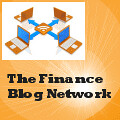 Debt is truly a four-letter word. In MOST cases, it is to be avoided. We read every day stories about how debt has crushed yet another individual or business. Each and every American owes an average of over $8,000 in credit card debt.
Debt is truly a four-letter word. In MOST cases, it is to be avoided. We read every day stories about how debt has crushed yet another individual or business. Each and every American owes an average of over $8,000 in credit card debt.
But not all debt is bad. Businesses borrow money at attractive rates by borrowing from banks or other financial institutions in order to grow their revenues or cut their costs. People borrow money to start small businesses or increase income. We also take out the biggest loan of most of our lives when we buy a house.
Debt is good when it increases your ability to earn money (or, in the case of a mortgage, when it helps you gain access to an asset that benefits you). In other words, debt is okay -- even recommended -- when it can get you where you need to go at a cost that isn't prohibitive.
We use debt wisely when we get the opportunity to use a zero percent credit card to pay down an existing higher interest rate debt. Or when we buy a house with 5, 10, or 20 percent down at a low adjustable rate for 5 or more years or a fixed rate for 15 or 30 years. Or when we can turn the proceeds of the debt into something greater than the costs to pay the debt (like a loan from the SBA that allows you to increase your earnings from your business).
We are dumb debtors when we buy consumables that we cannot immediately afford, like fast food, groceries, and gasoline. Make no mistake, I am not suggesting that you pay for your gasoline with cash (I always use a rewards credit card); rather, I am suggesting that you pay for all your purchases with a credit card and then pay off that balance every single month. Of course, this is
Debt Principle #1: Don't get into Dumb Debt in the first place.
I know it's really difficult not to get into debt in the first place. Believe me, I'm in debt and will be for a long time (I bought a house in 2004. In California. Enough said.) and I had been, up to a few years ago, always mired in credit card debt. In fact, my credit card debts were nearly $60,000. I maxed out every card I had, and I had a bucket full of them. Since college, I was bitten by the credit card bug. If I needed books, I bought them. ON CREDIT.
- If I needed a meal, I bought it. ON CREDIT.
- If I needed spending money, I got it. ON CREDIT.
- If I needed to pay rent and didn't have the funds available in my checking account, I got it. ON CREDIT.
- If I needed groceries, you get the picture (ON CREDIT).
So I know how a lot of you feel. I dug myself out of debt with the help of some really great people and with the conviction of not getting into credit card debt ever again. But it's hard.
Nowadays, you cannot rent a car on vacation without a credit card. It's terribly easy to let the charge ride onto the next bill if you're short on cash this month (and who isn't?). The problem is, the charges snowball.
You've got to figure out a way to stop the snowballing and reverse the trend. In coming posts of Getting Out of Debt (Part of an Infinite Series), I will talk about how I stopped the trend and turned it around. I will also discuss prudent debt, as well as how to use the credit to which you have access from your credit card(s). Other topics will include specific debt reduction strategies, as well as how to maximize your credit score.
An extremely important thing to keep in mind, coming full-circle from where we started this article, is that debt can be good. So, in that light, we'll talk about good debt, bad debt, and how to maximize the difference (ideally, you'll have all good debt and no bad debt). But remember, a "good debt" can turn to bad really quickly (if you own a mortgage on a house that is depreciating in price, rather than appreciating, then your debt is bad. We'll explore ways to turn that around, too.
So, stay tuned for more Getting Out of Debt (Part of an Infinite Series) posts.
Meanwhile, here's a great guide to getting out of debt: DebtFree Playbook.






0 comments
Post a Comment